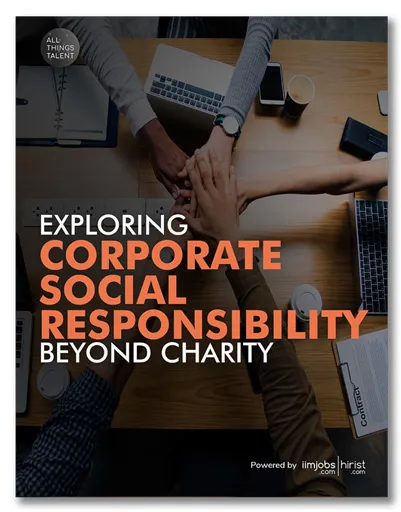her than treating corporate social responsibility (CSR) as a separate initiative.
The Shift from Charity to Purpose-Driven Strategies
Traditionally, CSR was seen as philanthropy—businesses would donate a portion of their profits to charitable causes. However, modern companies are realizing that social impact should not be an afterthought but an integral part of their value creation strategy. Purpose-driven businesses aim to solve real-world challenges while maintaining financial sustainability.
Unlike traditional charity-based CSR, these models are proactive and create long-term impact by aligning business goals with social good. Instead of one-time donations, companies now focus on sustainable initiatives, ethical sourcing, and environmentally friendly operations that benefit both society and their bottom line.
Key Characteristics of Purpose-Driven Business Models
Mission-Driven Operations
Companies with purpose-driven models define a social or environmental mission at the heart of their business. For example, Patagonia integrates sustainability by creating eco-friendly products and encouraging customers to repair rather than replace clothing.
Sustainable & Ethical Practices
Businesses are rethinking supply chains, energy use, and production processes to minimize negative environmental and social impacts. Unilever, for example, has committed to cutting its carbon footprint while maintaining profitability.
Social Innovation & Impact Investing
Many companies are launching initiatives that address pressing global challenges. Tesla’s innovation in electric vehicles not only disrupts the automotive industry but also promotes environmental sustainability.
Employee & Community Engagement
Purpose-driven companies actively involve employees and communities in their mission. Google’s "20% time" policy, which allows employees to work on socially impactful projects, fosters innovation and engagement.
Measurable Impact
Organizations now focus on quantifiable impact, using ESG (Environmental, Social, Governance) metrics and impact assessment tools to track progress. Companies like Microsoft publish annual sustainability reports detailing their carbon reduction and social investments.
The Business Case for Purpose-Driven Models
1. Competitive Advantage & Brand Loyalty
A strong social mission differentiates companies in crowded markets. Consumers are more likely to buy from brands that align with their values. A study by Edelman found that 64% of consumers choose, switch, or boycott brands based on their stance on social issues.
2. Employee Retention & Engagement
Millennials and Gen Z prioritize working for companies with strong ethical values. Purpose-driven businesses foster higher employee engagement, leading to increased productivity and lower turnover rates.
3. Investor Interest & Financial Performance
Sustainable investments are growing rapidly. ESG-focused funds are attracting billions of dollars, as investors recognize the long-term viability of companies committed to ethical and environmental responsibility.
4. Resilience & Long-Term Growth
Companies that prioritize sustainability and ethical business practices are more adaptable in times of crisis. The COVID-19 pandemic highlighted how businesses with strong CSR strategies were better equipped to manage economic disruptions.
Challenges & Considerations
Transitioning to a purpose-driven business model isn’t without hurdles. Companies often face challenges such as:
- Balancing Profitability & Impact: Aligning financial goals with social missions requires a well-structured strategy.
- Overcoming Greenwashing & Skepticism: Consumers and stakeholders demand transparency, and businesses must back up their claims with real impact.
- Regulatory & Compliance Issues: Companies must navigate complex legal and ethical considerations when implementing CSR initiatives.
Expert Insights: What Industry Leaders Say
Paul Polman (Former CEO, Unilever):
"Businesses cannot succeed in societies that fail. The role of corporations is to be part of the solution, not just profit from the problem."
Jacqueline Novogratz (Founder, Acumen Fund):
"The companies that will lead the future are those that serve a deeper purpose, one that resonates with employees and customers alike."
Conclusion: A Future Built on Purpose
The rise of purpose-driven business models marks a shift in how companies define success. Beyond financial returns, businesses are now expected to contribute to global progress in areas such as climate action, social equity, and community development. Those that embed purpose into their operations not only drive meaningful change but also ensure long-term sustainability, stronger brand loyalty, and greater resilience.
As businesses continue evolving, the question is no longer whether they should prioritize purpose—but how effectively they can integrate it into their core strategy.

